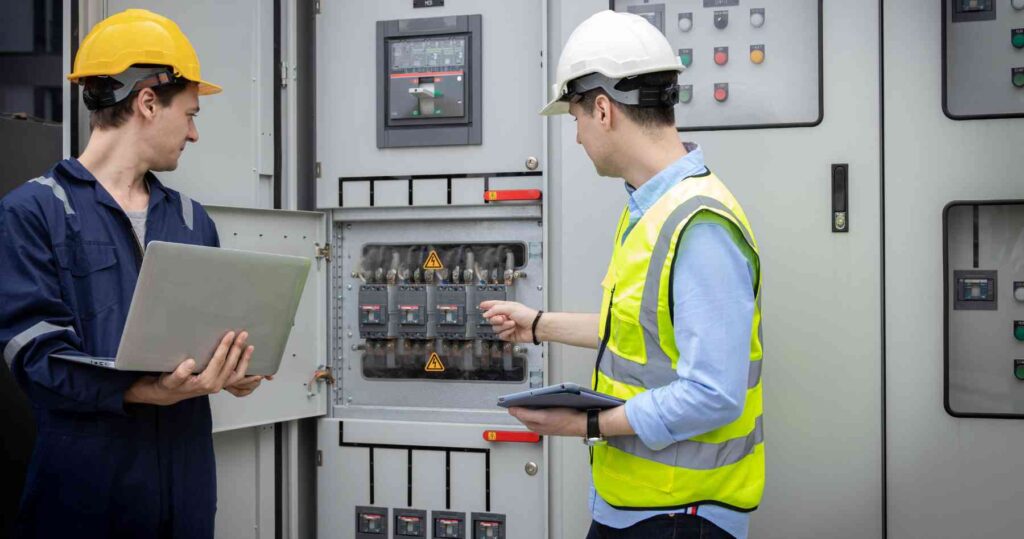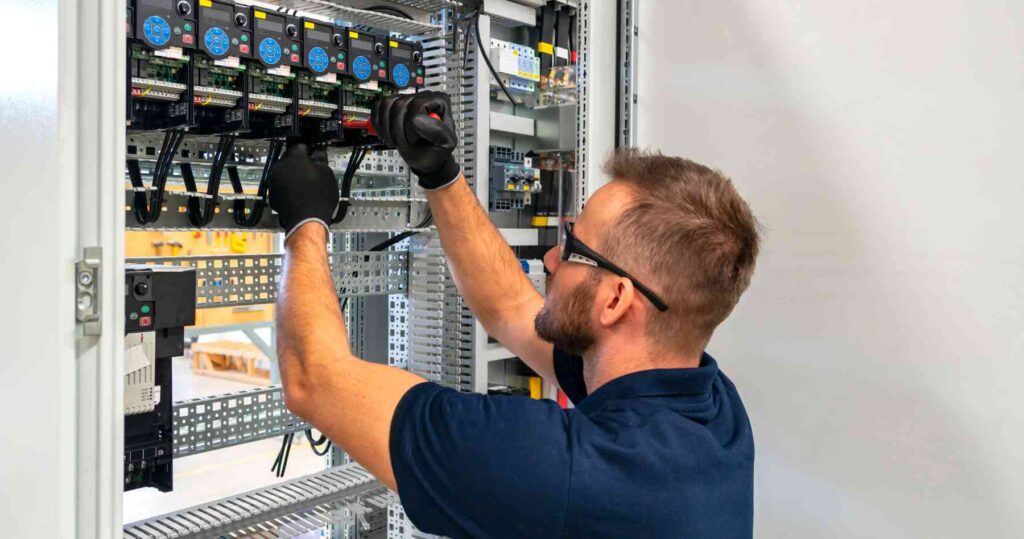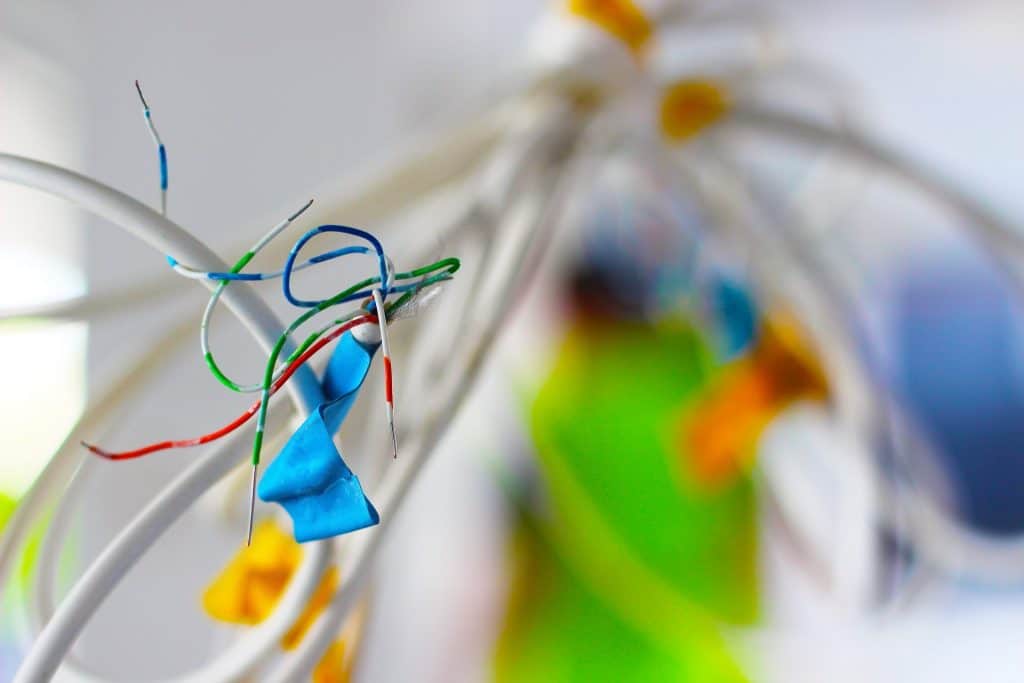The Top 5 Electrical Safety Precautions Every Homeowner Should Know
Electrical safety is of utmost importance for homeowners to ensure the well-being of their families and protect their properties from potential hazards. Taking the necessary precautions can prevent electrical fires, shocks, and other accidents caused by faulty wiring or improper handling of electrical appliances. In this article, we will provide practical tips and guidelines on electrical safety measures that every homeowner should know. By following these precautions, you can create a safe and secure environment in your home.

The Top 5 Electrical Safety Precautions Every Homeowner Should Know
Electrical safety precautions are crucial to minimize the risk of accidents and protect your loved ones. Here are the top five precautions that every homeowner should be aware of:
1. Regular Inspection of Electrical Systems and Wiring
One of the fundamental steps to ensure electrical safety is to conduct regular inspections of your home’s electrical systems and wiring. Over time, wiring can deteriorate or become damaged, increasing the risk of electrical hazards. Hiring a professional electrician to inspect your electrical system periodically is highly recommended. They will identify any potential issues and provide necessary repairs or replacements. Regular inspections can prevent electrical malfunctions, reducing the risk of fires and other accidents.
2. Proper Outlet Usage
Proper outlet usage is essential to prevent overloading circuits, which can lead to electrical fires. Avoid using multiple adapters or extension cords on a single outlet, as this can strain the circuit and cause overheating. Instead, distribute your electrical devices across multiple outlets. If you find that you frequently require additional outlets, consider consulting an electrician to install additional sockets in your home. It is also crucial to refrain from tampering with the outlets or attempting DIY electrical work, as this can be dangerous and should be left to professionals.
3. Safe Handling of Electrical Appliances
To ensure electrical safety, it is vital to handle electrical appliances with care. Always read and follow the manufacturer’s instructions for proper usage and maintenance. Never use appliances with frayed or damaged cords, as they can pose a significant risk of electrical shock or fire. When unplugging appliances, pull them out by gripping the plug itself instead of yanking the cord. Furthermore, avoid operating electrical devices near water sources to prevent the possibility of electrocution. Always keep electrical appliances away from wet areas like sinks, bathtubs, or swimming pools.
4. Ground Fault Circuit Interrupters (GFCIs)
Installing Ground Fault Circuit Interrupters (GFCIs) in your home is an effective way to enhance electrical safety. GFCIs are specialized outlets that can detect electrical imbalances and shut off the power supply instantly, preventing electrocution. They are typically installed in areas where there is a higher risk of water contact, such as kitchens, bathrooms, and outdoor outlets. GFCIs provide an added layer of protection by cutting off the electrical current when it detects a ground fault or leakage, significantly reducing the risk of electrical shock.
5. Smoke Alarms and Fire Safety
Smoke alarms play a crucial role in electrical fire prevention. Make sure to install smoke alarms on every level of your home, including bedrooms, hallways, and the kitchen. Regularly test the alarms to ensure they are functioning correctly and replace the batteries as needed. In addition to smoke alarms, having a fire extinguisher readily available in your home is essential. Ensure that every member of your family knows how to operate the fire extinguisher correctly. It is also advisable to have an emergency evacuation plan in place and practice it regularly with your family members.
Enjoy The Peace Of Mind And Safety Of A MASTER Electrician...



Frequently Asked Questions (FAQs)
Here are some commonly asked questions about electrical safety precautions:
Q: Can I perform electrical repairs or installations myself?
A: It is highly recommended to leave electrical repairs and installations to qualified electricians. Handling electrical work without proper knowledge and expertise can be dangerous and lead to severe accidents. Always consult a professional to ensure your safety and the safety of your home.
Q: How often should I have my electrical system inspected?
A: It is advisable to have your electrical system inspected by a professional electrician at least once every five years. However, if you notice any signs of electrical issues such as flickering lights, tripped circuits, or burning smells, it is crucial to seek professional assistance immediately.
Q: Are power strips safe to use?
A: Power strips are safe to use when used properly and not overloaded. It is important to read the manufacturer’s instructions and ensure that the power strip is rated for the devices you are connecting to it. Avoid plugging high-power appliances like refrigerators or air conditioners into power strips, as they can exceed the strip’s capacity and create a fire hazard.
Q: How do I know if my electrical wiring needs replacement?
A: Signs that your electrical wiring may need replacement include frequently blown fuses or tripped circuit breakers, flickering lights, burning smells, or discolored outlets. If you notice any of these signs, it is essential to have a professional electrician inspect your wiring and make the necessary repairs or replacements.
Q: What should I do in the event of an electrical fire?
A: In the event of an electrical fire, your top priority should be the safety of yourself and your family. Evacuate the premises immediately and call the fire department. Avoid using water to extinguish an electrical fire, as water conducts electricity and can lead to electrocution. Instead, use a fire extinguisher specifically designed for electrical fires or smother the flames with a heavy blanket.
Q: Is it necessary to unplug appliances when not in use?
A: Unplugging appliances when not in use is a good practice to save energy and reduce the risk of electrical hazards. However, for appliances that are difficult to unplug, such as refrigerators or televisions, ensure they are connected to outlets equipped with surge protectors to prevent power surges and potential damage.
Household Electrical Safety
Household electrical safety refers to the precautions and practices taken to ensure the safe use of electricity within a home. It involves understanding and implementing various measures to minimize the risk of electrical hazards, such as electrical shocks, fires, and electrocution. Household electrical safety includes proper installation and maintenance of electrical systems, safe usage of electrical appliances and outlets, regular inspections, and awareness of potential dangers. By prioritizing household electrical safety, homeowners can create a secure living environment for themselves and their families.
Home Electrical Protection
Home electrical protection involves utilizing devices and systems to safeguard the electrical infrastructure of a house from power surges, voltage fluctuations, and other electrical disturbances. These protections aim to prevent damage to appliances, electronic devices, and electrical systems caused by electrical spikes or overloads. Common home electrical protection measures include surge protectors, voltage stabilizers, circuit breakers, and grounding systems. These protective measures ensure the stability and longevity of the electrical system, reduce the risk of electrical fires, and provide added safety for homeowners.
Electrical Safety Measures
Electrical safety measures encompass a wide range of practices and precautions taken to ensure the safe handling, installation, and use of electrical equipment and systems. These measures involve following electrical codes and regulations, conducting regular inspections, practicing proper maintenance, and using appropriate protective gear when working with electricity. Electrical safety measures also include the correct installation of electrical outlets, grounding systems, and wiring to prevent electrical shocks and fires. Adhering to these measures is essential to minimize the risk of accidents, injuries, and property damage associated with electricity.
Electrical Accident Prevention
Electrical accident prevention refers to the strategies and precautions employed to reduce the occurrence of accidents and injuries related to electricity. It involves creating awareness about electrical hazards, educating individuals on safe electrical practices, and implementing preventive measures. Electrical accident prevention includes measures such as keeping electrical cords away from water sources, avoiding overloading circuits, using insulated tools, and implementing proper lockout/tagout procedures during maintenance or repair work. By promoting electrical safety awareness and implementing preventive measures, the number of electrical accidents can be significantly reduced, ensuring the well-being of individuals and protecting property from damage.

Main Electrical Services
✔ Electrical installations and fault finding
✔ Electrical maintenance and servicing
✔ Certificate of compliance (COC) test & inspections
✔ Hazardous location installations, inspections and services
✔ Fire pump system installations
✔ Busbar installations for power reticulation
✔ Lightning protection and earthing systems
✔ Electric fences and security systems
✔ Photovoltaic (PV)/Solar systems
✔ Load management and surveying
✔ Electrical systems design supervision
Electrical safety should never be taken lightly, and every homeowner should prioritize implementing the necessary precautions to protect their families and properties. By following the top five electrical safety precautions outlined in this article, regularly inspecting electrical systems, using outlets correctly, handling electrical appliances safely, installing GFCIs, and prioritizing fire safety, you can significantly reduce the risk of electrical accidents. Remember, when it comes to electrical work, always consult a professional electrician to ensure the highest level of safety. Stay informed, be cautious, and create a secure environment in your home.
